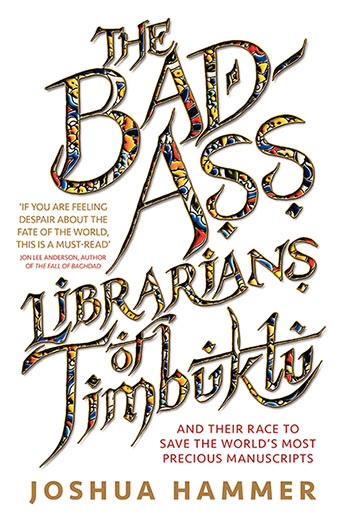 Goodwood doesn’t pursue the path of a traditional mystery novel and those looking for a heart–racing style whodunnit built around the two disappearances might be disappointed. The shock of those events is a catalyst here for deeper explorations of what lurks below the surface and how we create meaning in our lives in this tender, rich, and deeply enjoyable book.
Goodwood doesn’t pursue the path of a traditional mystery novel and those looking for a heart–racing style whodunnit built around the two disappearances might be disappointed. The shock of those events is a catalyst here for deeper explorations of what lurks below the surface and how we create meaning in our lives in this tender, rich, and deeply enjoyable book.
A review of Walking Through Walls by Karen Cioffi
 Walking Through Walls is just right for around 8-12 year olds (or to read to younger children), providing an engaging, engrossing story with a strong plot, lots of atmosphere, and a positive message that is perfect for young readers, without being preachy. The story is set in the sixteenth century, and is based on an ancient Chinese story “Taoist Master and the Lao Mountain,” also an animated film Lao Mountain Taoist. Cioffi fills the story with details to evoke the setting and timeframe, from the mountains in the distance, lemon lilies, yellow cakes with red berries and tea, and the scents and sounds of rural life.
Walking Through Walls is just right for around 8-12 year olds (or to read to younger children), providing an engaging, engrossing story with a strong plot, lots of atmosphere, and a positive message that is perfect for young readers, without being preachy. The story is set in the sixteenth century, and is based on an ancient Chinese story “Taoist Master and the Lao Mountain,” also an animated film Lao Mountain Taoist. Cioffi fills the story with details to evoke the setting and timeframe, from the mountains in the distance, lemon lilies, yellow cakes with red berries and tea, and the scents and sounds of rural life.
A review of If I Can Make It There, I Can Make It Anywhere by M. Stefan Strozier
 Have you ever wondered how to go about producing a play or musical theatre? In New York? Though I’m sure it’s difficult, Strozier makes the process of producing plays and musical theatre in the Big Apple seem relatively easy – breaking it down into its key components and providing a very clear and quite thorough set of instructions for each component.
Have you ever wondered how to go about producing a play or musical theatre? In New York? Though I’m sure it’s difficult, Strozier makes the process of producing plays and musical theatre in the Big Apple seem relatively easy – breaking it down into its key components and providing a very clear and quite thorough set of instructions for each component.
An interview with JAnn Bowers
 The author of She’s Gone…Broken, Battered & Bruised talks about herself, how she started blogging, blogging tips, about poetry and her favourite poets, and more.
The author of She’s Gone…Broken, Battered & Bruised talks about herself, how she started blogging, blogging tips, about poetry and her favourite poets, and more.
A review of Ota Benga by Elvis Alves
 The poems in Elvis Alves’ new chapbook Ota Benga have a rhythm that is almost performative. Most of the poems have a subtle rhyme scheme that, when enriched by a modern undercurrent of political anger, comes across with a slam aesthetic. They work particularly well when spoken aloud, with the rhythms of a New York vernacular. Throughout the collection there is a common theme of enslavement versus freedom.
The poems in Elvis Alves’ new chapbook Ota Benga have a rhythm that is almost performative. Most of the poems have a subtle rhyme scheme that, when enriched by a modern undercurrent of political anger, comes across with a slam aesthetic. They work particularly well when spoken aloud, with the rhythms of a New York vernacular. Throughout the collection there is a common theme of enslavement versus freedom.
A review of The Bad-Ass Librarians of Timbuktu and Their Race to Save the World’s Most Precious Manuscripts by Joshua Hammer
 This is an important subject treated with seriousness by the author, who is a journalist of some standing and the author of three other books. The title is somewhat misleading, however, as the librarians are not so much ‘bad-ass’ as courageous and dedicated to their quest to save centuries-old Islamic and secular manuscripts on a range of topics from destruction by militants of Al Qaeda.
This is an important subject treated with seriousness by the author, who is a journalist of some standing and the author of three other books. The title is somewhat misleading, however, as the librarians are not so much ‘bad-ass’ as courageous and dedicated to their quest to save centuries-old Islamic and secular manuscripts on a range of topics from destruction by militants of Al Qaeda.
A review of Known and Strange Things by Teju Cole
 Known and Strange Things, the title coming from Seamus Heaney, is structured by division into four sections: Reading Things; Seeing Things; Being There; and Epilogue. Cole notes that the book contains ‘some of my most vital enthusiasms’ as well as pieces on the new, and that he was testing his knowledge and its limits. He left as much out as he included, and could have produced a second book with the excluded.
Known and Strange Things, the title coming from Seamus Heaney, is structured by division into four sections: Reading Things; Seeing Things; Being There; and Epilogue. Cole notes that the book contains ‘some of my most vital enthusiasms’ as well as pieces on the new, and that he was testing his knowledge and its limits. He left as much out as he included, and could have produced a second book with the excluded.
A review of Laurinda by Alice Pung
 It would be a rare reader that didn’t feel an affinity for the protagonist in Alice Pung’s charming coming-of-age story, Laurinda. The is something universal about fifteen year old Lucy Lam’s dislocation as she tries to navigate the clique-iness, the odd social mores, and the subtle bullying that takes place at Laurinda, a prestigious private school to which Lucy has received the first equity scholarship.
It would be a rare reader that didn’t feel an affinity for the protagonist in Alice Pung’s charming coming-of-age story, Laurinda. The is something universal about fifteen year old Lucy Lam’s dislocation as she tries to navigate the clique-iness, the odd social mores, and the subtle bullying that takes place at Laurinda, a prestigious private school to which Lucy has received the first equity scholarship.
A review of Metaphor Issue 5 edited by April Mae M. Berza
 The editor of Metaphor Issue 5 has succeeded in assembling a group of fine poets. Poets representing a volume of diverse voices. Poems in this volume are varied. Some are philosophical, addressing social justice and others speak to our daily lives and myriad experiences. The writing is esthetically rich in content and well crafted.
The editor of Metaphor Issue 5 has succeeded in assembling a group of fine poets. Poets representing a volume of diverse voices. Poems in this volume are varied. Some are philosophical, addressing social justice and others speak to our daily lives and myriad experiences. The writing is esthetically rich in content and well crafted.
Jennifer Maiden on Play With Knives
Poet and novelist Jennifer Maiden drops by to read from her latest novel Play With Knives: Three: George and Clare and the Grey Hat Hacker, and to talk about all three novels in the Play With Knives series, about the joy…